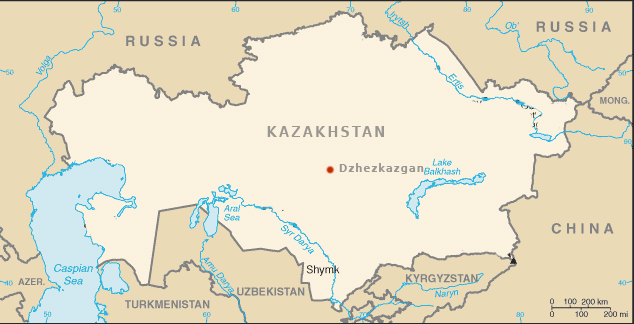NewsDesk @infectiousdiseasenews
The Department of Sanitary and Epidemiological Control reported a tetanus death in northern Kazakhstan.

The case was a 54-year-old man from Uzbekistan who injured his right foot with a nail during construction work (August 21). Despite exhibiting symptoms he did not seek medical help until five days after the injury.
With the persistence of symptoms on August 26, an ambulance was called for the man. The patient was taken to the emergency room of the district hospital. At the time of the examination, he presented with spasm of the jaw, stiffness along the entire spine and severe weakness.
“Based on the presence of an epidemiological history and clinical picture, a diagnosis of tetanus was made. The vaccination status of the patient is unknown. Emergency vaccination was carried out. From the moment of admission to the hospital, the patient’s condition remained without visible changes, consistently grave. On August 28, he died,” stated Arman Kushbasov, deputy head of the regional department of sanitary and epidemiological control.
Tetanus is an acute infectious disease caused by spores of the bacteria Clostridium tetani. These spores are found everywhere: in the environment (especially soil), ash, intestines / feces of animals and humans, and on the surface of skin and rusty tools such as nails, needles, barbed wire and others. Due to the high resistance of spores to high temperatures and most antiseptics, they can live for years.
Anyone can get tetanus, but the most common and most severe cases of tetanus are people who have not been adequately immunized with tetanus toxoid vaccines.
The incubation period for tetanus lasts from 3 to 21 days after infection. In most cases, the disease develops within 14 days.
Symptoms may include jaw spasm or inability to open the mouth, sudden painful muscle spasms often triggered by random noises, difficulty swallowing, convulsions, headache, fever and sweating, changes in blood pressure, and heart palpitations.
The only means of prevention is timely routine vaccination, which in Kazakhstan is included in the national vaccination calendar and is carried out free of charge from 2 months of age, then at 3, 4 months, at 1.5 years, at 6 years, 16 years and then every 10 years.
Anthrax case reported in North Kazakhstan


One thought on “Tetanus death reported in Northern Kazakhstan”